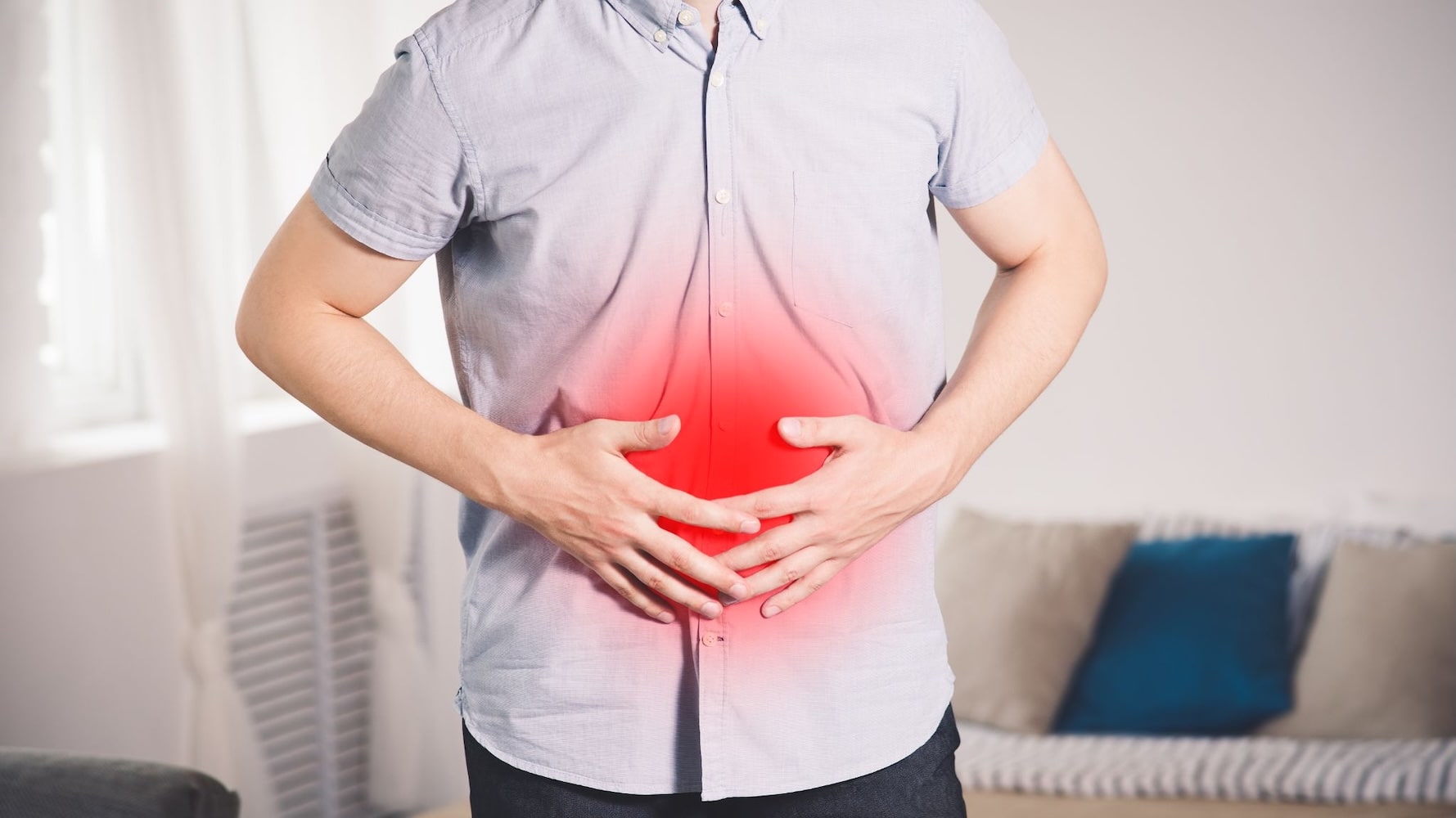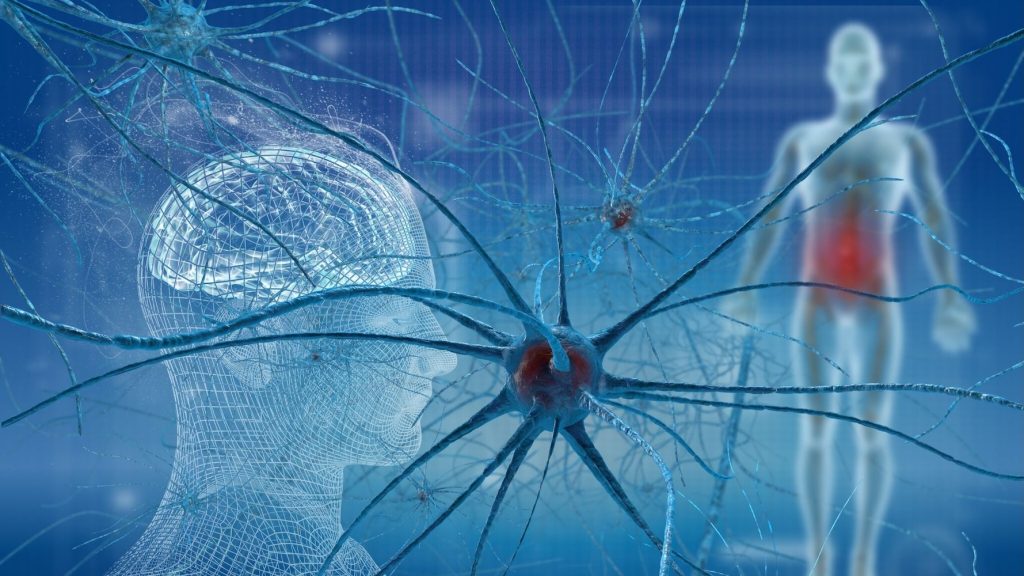
Have you ever gone through rounds of tests for your stomach pain, only to be told everything looks normal? You’re not alone. Many individuals struggle with persistent discomfort, cramping or bloating—yet scans, scopes and blood tests show no clear cause. This experience can be incredibly frustrating and isolating.
Growing evidence points to a powerful, often overlooked culprit: your mind. So, can anxiety cause stomach pain? The answer is yes. Emotional stress does not just stay in your head. It can trigger real, physical symptoms in your digestive system.
In this article, we’ll explain how the gut-brain connection works, what anxiety and stomach pain look and feel like, and when it is time to seek medical evaluation. You will also learn how to manage symptoms and why a combined mental and physical approach to treatment is often the most effective.
If you’ve ever wondered what stomach anxiety pain feels like or why your gut seems to react so strongly to stress, this guide will help you understand what your body is trying to tell you and what to do next.

Your gut is more than just a digestion machine. It is a highly sensitive, intelligent system connected directly to your brain. This is known as the gut-brain axis, a complex communication network that includes your central nervous system, hormones, immune response and the trillions of bacteria living in your digestive tract.
Some scientists even call your gut the “second brain,” or the enteric nervous system, because it can operate semi-independently and responds to emotional cues. This system regulates how your intestines contract, how nutrients are absorbed and how inflammation is triggered.
When you are under stress, the brain sends signals to the gut, leading to discomfort, nausea or changes in bowel habits. Likewise, imbalances in gut bacteria can send distress signals to your brain, contributing to anxiety or low mood. This two-way interaction helps explain why digestive issues often accompany mental health concerns.
Our gastroenterologist, Dr. Webber Chan, highlights that understanding this gut-brain relationship is crucial. Many patients experience stress-related stomach pain without realising how closely their emotions and digestive system are intertwined.
When you’re anxious, your body goes into survival mode – also known as the fight-or-flight response. This triggers the release of cortisol and adrenaline, which prepare your muscles to act quickly but simultaneously suppress non-essential systems like digestion.
The result shows slowed or erratic gut motility, increased stomach acid and changes in blood flow to the intestines—all of which can cause physical discomfort.
Common symptoms of anxiety and stomach pain include:
These symptoms may vary from day to day and can occur even in the absence of food triggers or infection. Many patients describe it as an irritable stomach anxiety response – unpredictable, uncomfortable and often misunderstood by others.
Dr. Webber Chan explains that anxiety can affect the gut in many ways, from subtle aches to sharp cramps, often flaring during stressful or difficult moments. This is where understanding how stress affects digestion becomes important.
It helps validate the patient’s experience and allows our gastroenterologist to tailor care in a way that addresses both emotional and digestive health.
While stress is a known cause of stomach pain, not all pain should be attributed to anxiety. It’s important to recognise red flag symptoms that may signal an underlying gastrointestinal condition requiring urgent attention.
These include:
Dr. Chan reminds patients that these warning signs deserve attention. A proper evaluation ensures that more serious conditions are not overlooked while addressing stress-related factors.

Stomach pain is one of the most common complaints in primary care—and one of the most frequently misattributed. Patients with anxiety and stomach issues may be told they have indigestion or reflux, but without a complete evaluation, underlying conditions can be missed.
Dr. Chan often hears this question in the clinic: “Do I need a gastroscopy for stomach pain?” His answer depends on the nature and persistence of your symptoms.
If your pain is persistent, unexplained or accompanied by the symptoms above, he may recommend further tests, including a gastroscopy. This procedure allows him to visualise your oesophagus, stomach and the first part of your small intestine to rule out serious conditions like ulcers, gastritis or early cancers.
Even if all your tests come back normal, your pain is still valid. Some patients live with functional conditions such as functional dyspepsia or irritable stomach anxiety, which can mimic structural problems but stem from how your brain and gut communicate. These conditions are real and treatable, especially when anxiety or stress plays a role.
For example, functional dyspepsia mimics acid reflux but often stems from hypersensitive nerves in the stomach lining. It is more common in individuals with anxiety and doesn’t always improve with antacids. Likewise, IBS and anxiety often overlap, complicating diagnosis and treatment.
Another point of confusion is anxiety vs acid reflux. While they can occur together, anxiety doesn’t always increase acid production. It can simply alter the sensation of discomfort or lead to muscle spasms that feel like reflux.
Ultimately, the key is to rule out serious causes of pain while also acknowledging the role of emotional health. Ignoring the psychological component may lead to unnecessary procedures, while ignoring physical signs could delay needed treatment.
Once serious conditions are ruled out, the focus shifts to managing stress-related symptoms and improving quality of life. Several strategies have been shown to reduce symptoms of stress in the gut.
Lifestyle strategies include:
Mind-body techniques such as breathwork, progressive relaxation or guided mindfulness can significantly reduce gut tension. Psychotherapy, particularly cognitive behavioural therapy (CBT), has shown strong results for those with anxiety and stomach issues.
Some patients benefit from medications. Antispasmodics may help calm cramping, while low-dose antidepressants (like SSRIs) can improve gut-brain communication in severe cases.
At The Gastroenterology Group, Dr. Webber Chan takes a functional and integrative approach, often collaborating with dietitians and psychologists. By addressing both the physical and emotional aspects of stomach pain, he helps patients avoid unnecessary testing and focus on long-term relief.
Stomach pain that seems to have no clear cause can still be a sign that something deeper is going on. Whether it is driven by anxiety, stress or a functional condition, your symptoms deserve attention—not dismissal.
Our gastroenterologist, Dr Webber Chan, believes in looking beyond test results to uncover the full picture of your health. By addressing both physical and emotional factors, Dr. Webber Chan ensures that your care is comprehensive and personalised. His goal is to help you find clarity, reassurance, and a treatment plan that works for you.
Post Tags :
Share :
Book Now

The Gastroenterology Group is a group of gastroenterology and hepatology specialists focused on delivering evidence-based, personalised care.

The Gastroenterology Group is a group of gastroenterology and hepatology specialists focused on delivering evidence-based, personalised care.